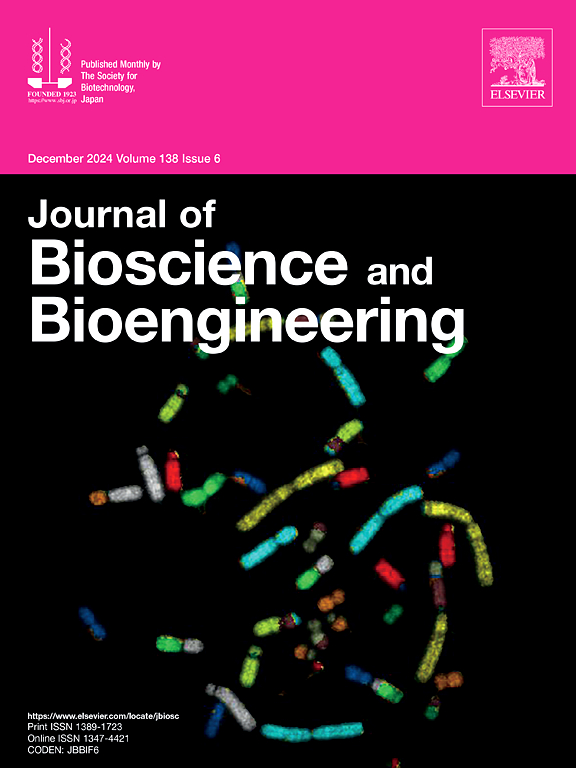通过深度测序和机器学习从不利富集的噬菌体展示选择中发现抗体片段并进行亲和成熟。
IF 2.9
4区 生物学
Q3 BIOTECHNOLOGY & APPLIED MICROBIOLOGY
引用次数: 0
摘要
噬菌体展示选择已被用于抗体片段的定向进化。然而,由于在生物筛选过程中不希望富集与靶标无关的变异,具有结合亲和力的变异并不总是被识别出来。在这里,我们的目标是通过深度测序和机器学习从功能变体没有适当丰富的噬菌体展示库中获得功能变体。对先前生物筛选池的深度测序显示,扩增偏差可能阻止了靶结合噬菌体的富集。我们在深度测序分析的基础上进行了序列相似性搜索,减少了偏倚的影响,从而发现了一个具有结合亲和力的变异,这是传统筛选方法无法发现的。我们将机器学习应用于深度测序数据;机器学习提出了增加亲和力的有效突变,使我们能够识别出具有提高亲和力的变体(EC50 = 3.46 μM)。总之,我们提出了通过使用深度测序和机器学习从不利富集的噬菌体文库中获得功能变体的可能性。本文章由计算机程序翻译,如有差异,请以英文原文为准。
Discovery and affinity maturation of antibody fragments from an unfavorably enriched phage display selection by deep sequencing and machine learning
Phage display selection has been used for directed evolution of antibody fragments. However, variants with binding affinity cannot be always identified due to undesirable enrichment of target-unrelated variants in the biopanning process. Here, our goal was to obtain functional variants by deep sequencing and machine learning from a phage display library where functional variants were not appropriately enriched. Deep sequencing of the previously biopanned pools revealed that amplification bias might have prevented the enrichment of target-binding phages. We performed a sequence similarity search based on the deep sequencing analysis so that the influence of bias was decreased, leading to discovery of a variant with binding affinity, which could not be discovered by a conventional screening method alone. We applied machine learning to the deep sequencing data; the machine learning proposed effective mutations for increasing affinity, allowing us to identify a variant with improved affinity (EC50 = 3.46 μM). In summary, we present the possibility of obtaining functional variants even from unfavorably enriched phage libraries by using deep sequencing and machine learning.
求助全文
通过发布文献求助,成功后即可免费获取论文全文。
去求助
来源期刊

Journal of bioscience and bioengineering
生物-生物工程与应用微生物
CiteScore
5.90
自引率
3.60%
发文量
144
审稿时长
51 days
期刊介绍:
The Journal of Bioscience and Bioengineering is a research journal publishing original full-length research papers, reviews, and Letters to the Editor. The Journal is devoted to the advancement and dissemination of knowledge concerning fermentation technology, biochemical engineering, food technology and microbiology.
 求助内容:
求助内容: 应助结果提醒方式:
应助结果提醒方式:


